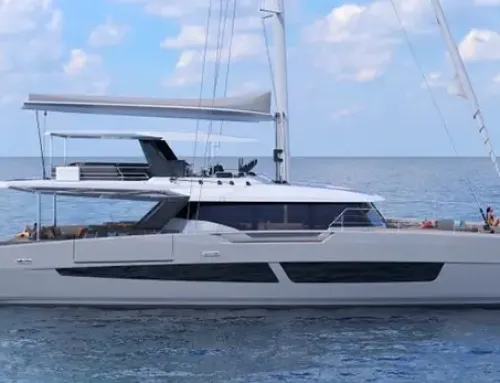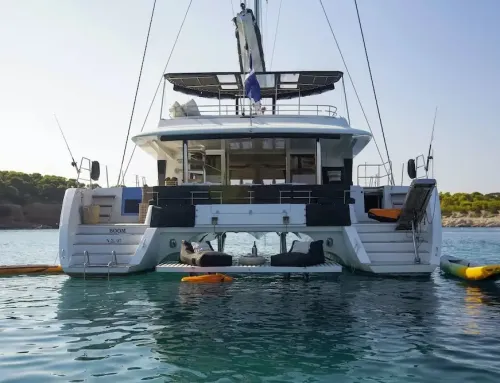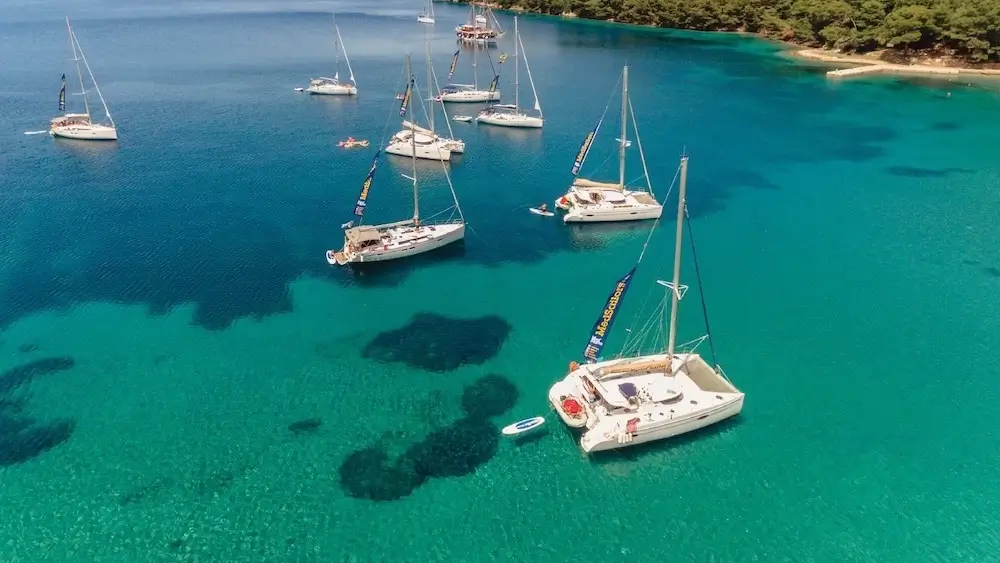
Weather conditions for sailing in Split area
With its gorgeous beaches, ancient islands, and temperate climate, the Split region of Croatia offers sailors from all over the world an idealised vision of Mediterranean paradise when sailing its azure waters.
Overview of Split Yachting
The second-biggest city in Croatia, Split, is the starting point for sailing trips and island hopping around the middle Dalmatian archipelago. The city is a great place to start exploring the captivating Croatian coast because of its rich history and contemporary marina amenities.
Split’s Coastline: Alluring
The Split region is well known for its variety of coastal environments, which range from busy beachfronts to quiet coves and each provide sailors with a different sailing experience. The neighbouring islands of Vis, Brač, and Hvar are easily accessible and offer plenty of exploration options. Each island has a rich history and stunning natural surroundings.
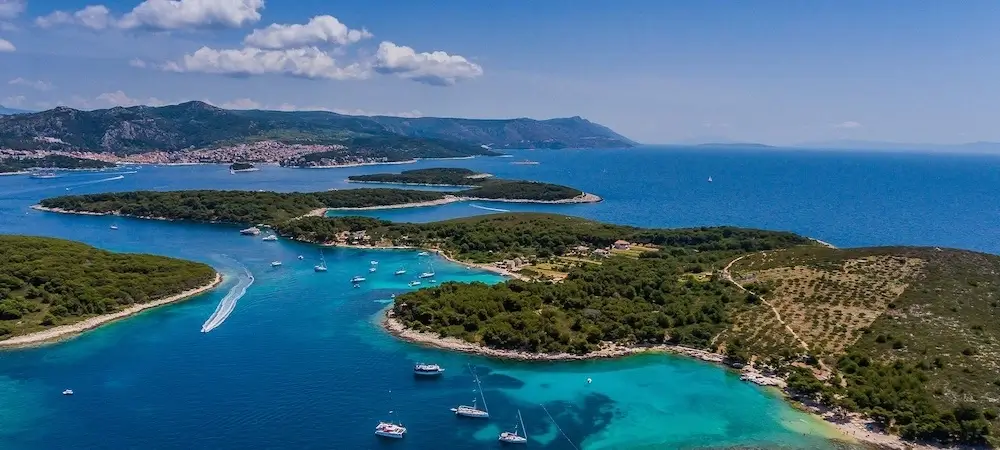
Weather Conditions For Sailing In Split Area 2
Conditions of the Weather for Sailing in Split
For any sailing expedition to be successful, it is imperative to understand the local weather. Split has a classic Mediterranean climate, with hot, dry summers and warm, wet winters that make it a great place to sail for most of the year.
Croatia’s Sailing Winds
The wind patterns in the Adriatic Sea are renowned for being consistent, which is quite advantageous for sailing activities. The most typical winds consist of:
- Bora: Known for its erratic behaviour, this powerful, chilly wind blows down from the highlands to the coast.
- Jugo: A warm, humid wind from the southeast that frequently brings with it rain and erratic conditions.
- Maestral: A summer afternoon breeze that cools off on hot days and makes for perfect sailing conditions.
Split’s sea temperature
In addition to sailing, the sea in the Split region is ideal for swimming, snorkelling, and water sports in the summertime, when typical temperatures range from 22°C to 27°C (72°F to 81°F).
Ideal Time to Go on a Split Sail
High Point of the Yachting Season
When the weather is mild and the Maestral breeze provides ideal sailing conditions, late spring to early fall (May to October) is the ideal season to sail at Split. The tourist season falls during this time, which gives the islands and coastal towns a vibrant vibe.
Off-Peak Research
Early autumn (September and October) and late spring (May and early June) are the best times to visit Split if you want to escape the crowds and see the less crowded side of the city. The sea is still warm enough for swimming and the weather is still lovely.
Statistical Overview: Split, Croatia
Even while statistics like Split, Croatia’s average age may not have an impact on sailing conditions, knowing the locals will improve your trip. Thanks to its colleges and thriving cultural scene, Split is a dynamic city with a youthful vibe that appeals to both sailors and tourists with its intriguing blend of modernity and history.
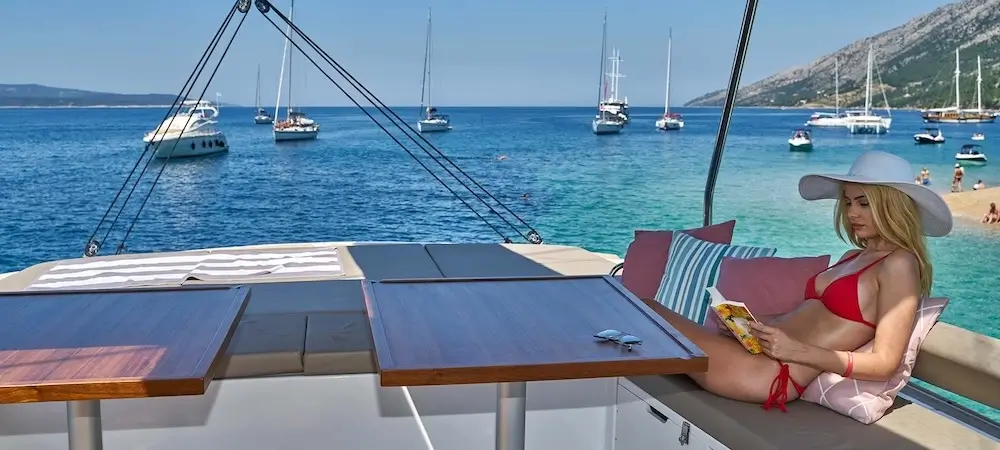
Weather Conditions For Sailing In Split Area 3
Getting Ready for Your Journey
Gaining Navigating Skills in Adriatic Seas
With its numerous islands and reefs, the Adriatic Sea requires caution and respect when navigating. It is imperative to devote sufficient time to comprehending regional nautical charts, GPS guidance, and the specifics of the area’s waterways. Get familiar with the guide to seasonal sailing to help you predict possible conditions.
Getting Supplies for Your Yacht
A well-stocked yacht is the cornerstone of a comfortable sailing voyage. In order to support local farmers and savour the flavours of the area, give priority to the fresh local goods found in Split’s markets when stocking up. When going on long travels, strike a balance between fresh and non-perishable basics to make sure you have enough supplies without packing too much in your storage areas. You can plan ahead by using advice on how to provision for a bareboat charter.
Hacks for Sailing in the Adriatic
Making Use of Local Wind Patterns
Your sailing experience can be greatly enhanced by comprehending and utilising the local wind patterns. Maestral is a pleasant afternoon wind that is ideal for relaxing day sails, but you may avoid potential problems by being aware of the Bora and Jugo. To stay ahead of the weather, always have a wind forecast app on hand and become proficient in spotting changing conditions.
Anchoring Strategies
There are peaceful and difficult anchoring locations around the varied coastline. Choose bays with adequate protection, particularly if the Bora is predicted. A secure hold can also be ensured by being aware of the seabed composition of the anchorage you have chosen; in general, sandy bottoms offer superior anchor grip.
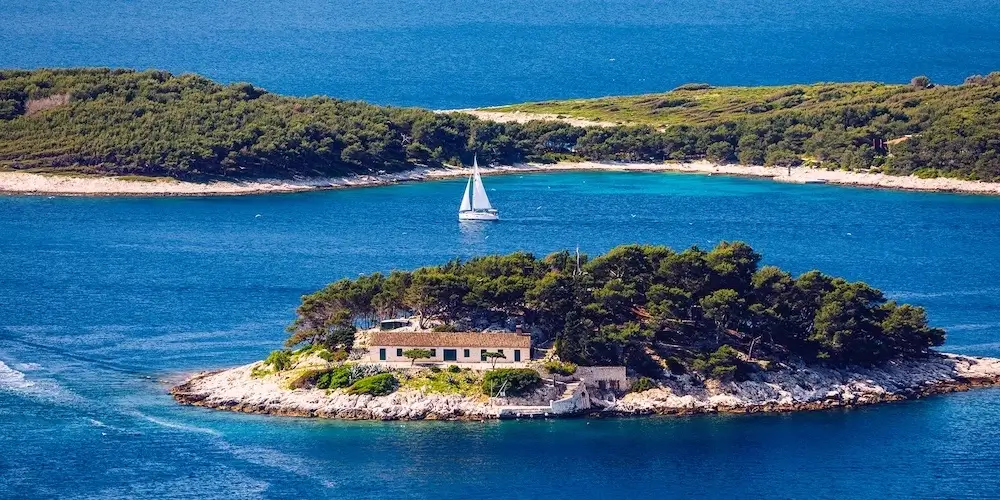
Weather Conditions For Sailing In Split Area 4
Taking Part in the Regional Culture
Interacting with the Maritime Sector
The best way to appreciate Split’s rich maritime history is to get involved with the local sailing community. Sailing clubs and marinas are informational centres rich in history and wisdom, providing details on the greatest sailing routes, undiscovered treasures, and sailing activities in the area. Engaging in social events or regattas can deepen your knowledge of Croatian maritime culture.
Investigating Cuisine
Croatian food, which combines Mediterranean and Balkan flavours, is a tribute to the history and geography of the area. Enjoy the chance to eat at the neighborhood’s konobas (taverns) and restaurants in Split. There, you may find delicacies like octopus salad, freshly grilled fish, and peka, a Croatian dish of meat or seafood cooked under an iron bell. A tasty dimension to your vacation is added when you exploring the local gastronomy on a catamaran hire for a fully immersive experience.
Getting Around the Obstacle
Handling Large Groups and Privacy
In high season, Split and the nearby islands can develop into thriving centres. Look for lesser-known islands or schedule your visit to renowned locations during off-peak hours if you want to discover tranquilly. Sails in the early morning or late afternoon can showcase these locations’ serene beauty away from the people.
Safety Above All on the Adriatic Sea
Weather Awareness and Safety Equipment
Navigating the Adriatic presents its own set of difficulties despite its natural beauty. It is vital to be constantly aware of the weather, especially in light of the sudden nature of the Bora wind. Make sure your boat is equipped with the most recent safety equipment, such as emergency flares, a fully supplied first aid bag, and life jackets for every passenger. Make sure your communication devices are up to date, and become acquainted with the local search and rescue activities.
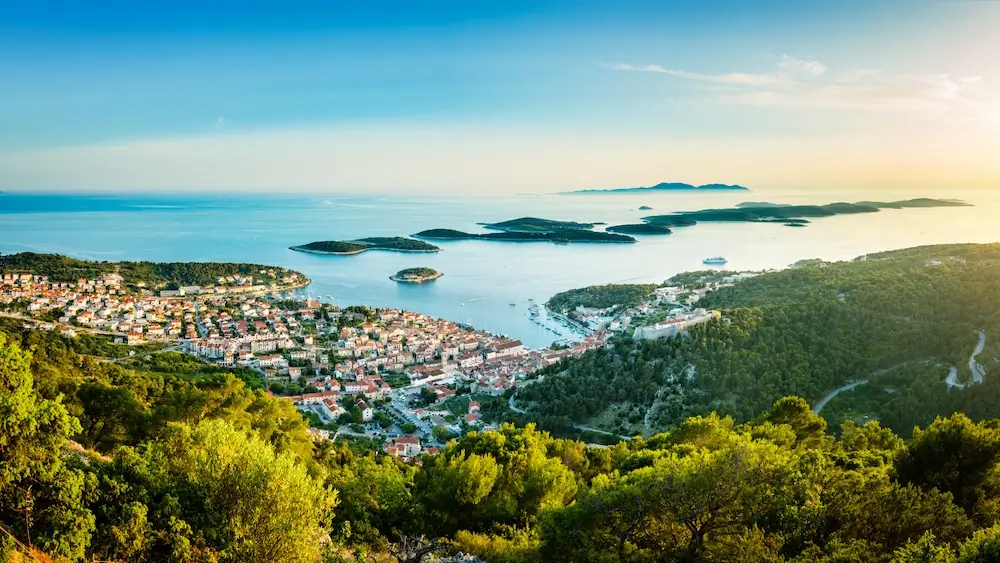
Weather Conditions For Sailing In Split Area 5
Awareness of Navigation
There are numerous other boats in the waterways surrounding Split, ranging in size from big ferries to little fishing boats. By keeping a close eye on navigation and following marine traffic regulations, one can avoid mishaps and guarantee a pleasant sailing experience for all parties.
Adopting Sustainable Yachting Techniques
Defending the Marine Environment
One of the greatest treasures of the Adriatic Sea is its tremendous biodiversity. It is our duty as sailors to preserve this maritime ecosystem. Use sunscreens that are safe for the environment and don’t affect aquatic life. You should also dispose of your garbage correctly on land and avoid anchoring in sensitive regions like seagrass beds, which are important for the ecosystem’s health.
Ecological Supply Chain Management and Research
In addition to giving you access to wonderful, fresh produce, supporting local markets lowers the carbon footprint of your provisioning. When visiting the islands and coastal towns, observe local traditions, patronise locally owned and crafted businesses, and take into account eco-friendly transportation options for on-land exploration, such as electric scooters or bicycles.
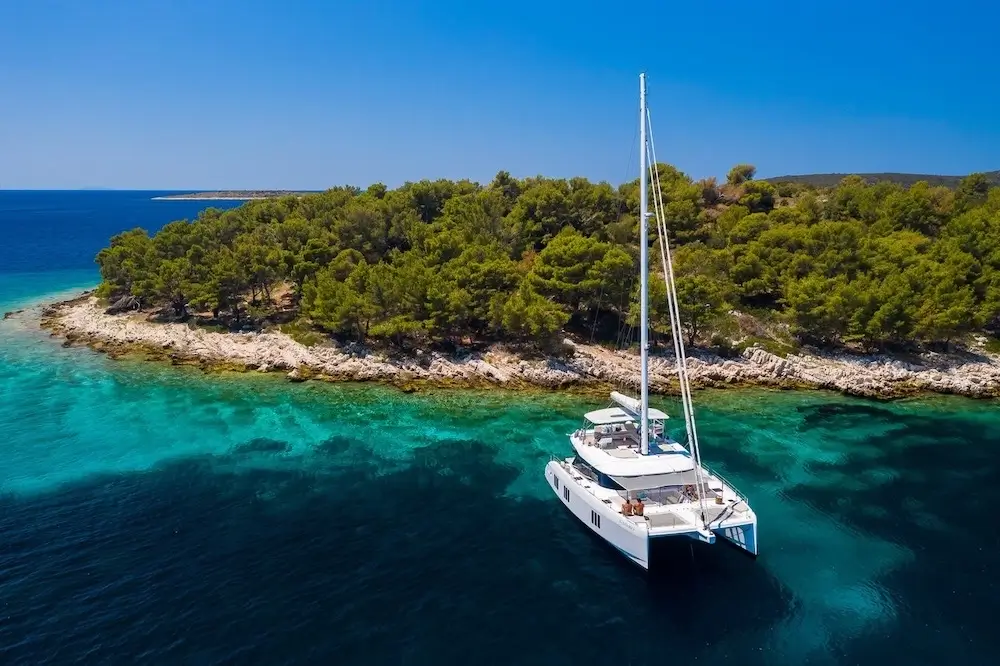
Weather Conditions For Sailing In Split Area 6
Considering Your Journey Again
The Aftereffects of Your Journey
As your sailing vacation in the Split region comes to an end, pause to consider the things you have learned, the places you have seen, and the people you have encountered. Think on how the voyage has improved your knowledge of sailing, the environment, and Croatian cultural heritage.
Telling Your Tale
Sharing your journey via a blog, social media posts, or even a logbook can encourage other people to take up sailing as a hobby while considering how their actions will affect the environment. A community of responsible and enthusiastic sailors is fostered through the sharing of advice, memorable experiences, and lessons learned.
Organising Your Upcoming Boat Experience
It is never too early to start daydreaming about your next sailing destination, especially while the blue waters of Split are still in your memory. The sea’s appeal never goes away, whether it’s to explore a new region of the Mediterranean or take on a fresh challenge abroad. When you plan your next journey, consider incorporating even more sustainable and immersive sailing methods into your itinerary, based on the insights you got from this trip.
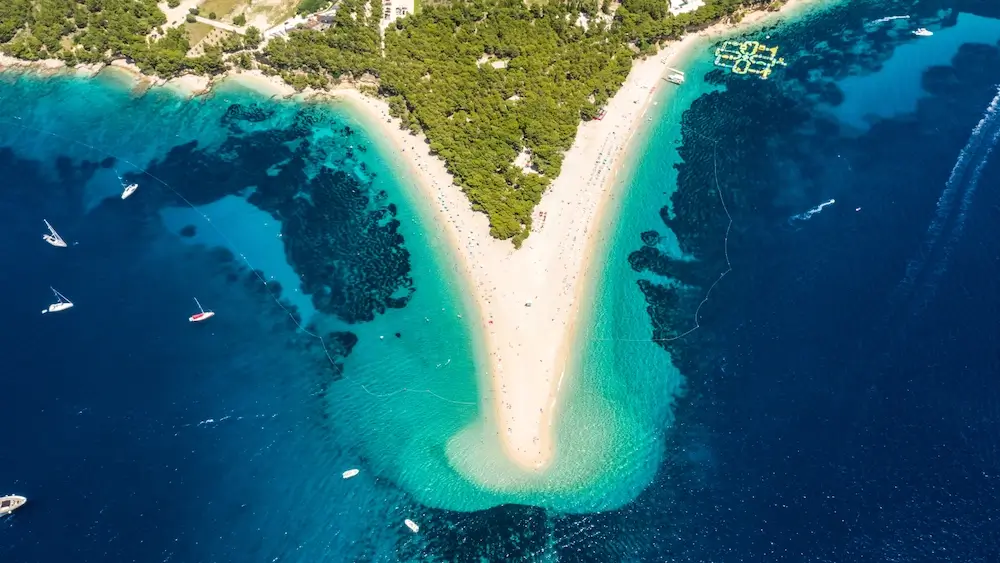
Weather Conditions For Sailing In Split Area 7
Conclusion
The natural beauty, cultural diversity, and sailing challenges of the Split region are unequalled when sailing there. Sailors may guarantee that their travels have a beneficial impact on the areas they visit by planning ahead, being environmentally conscious, and adopting the customs of the people they visit. Keep in mind that every voyage is a chance to improve as a sailor and as a guardian of the planet’s priceless marine habitats as you navigate the Adriatic.

